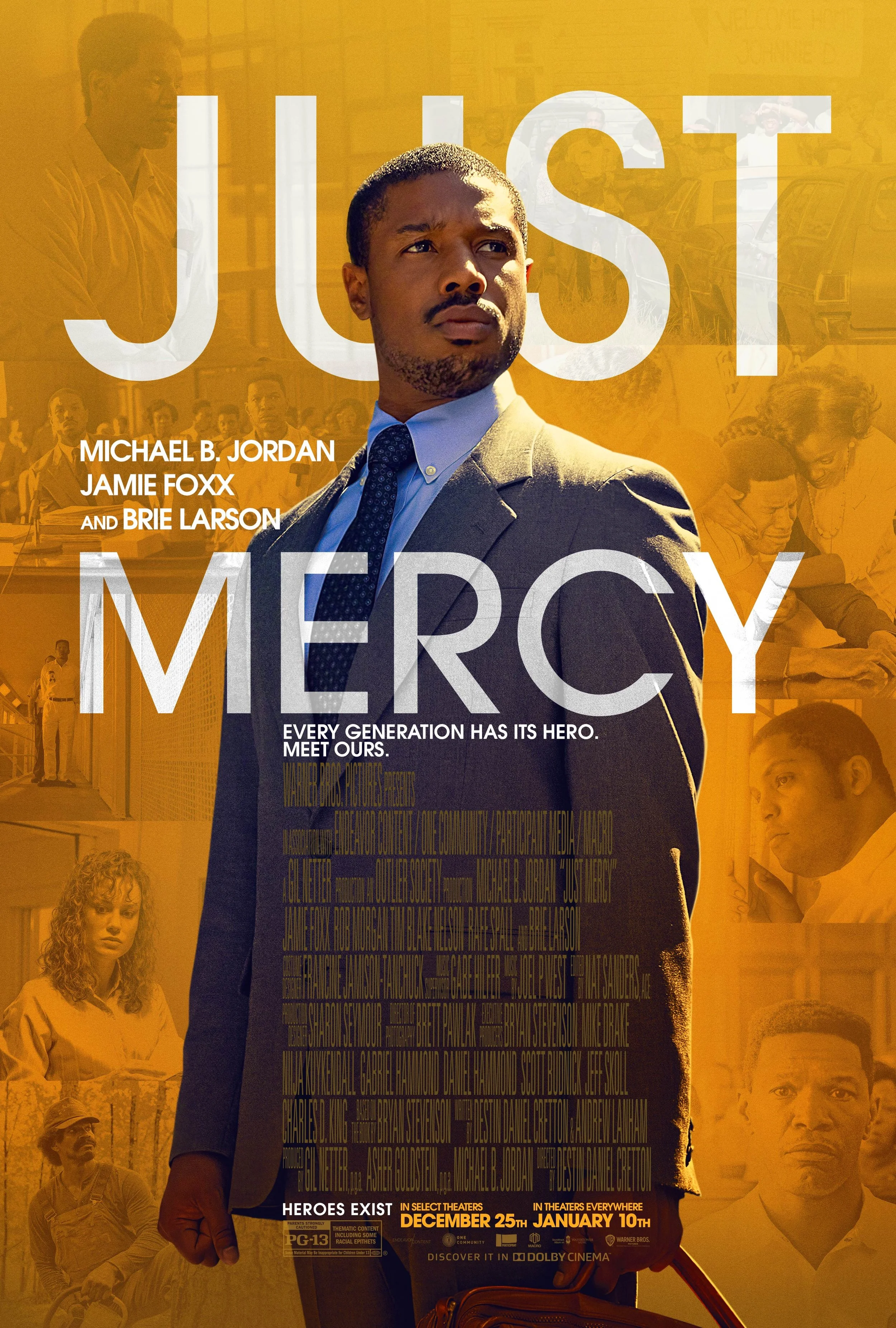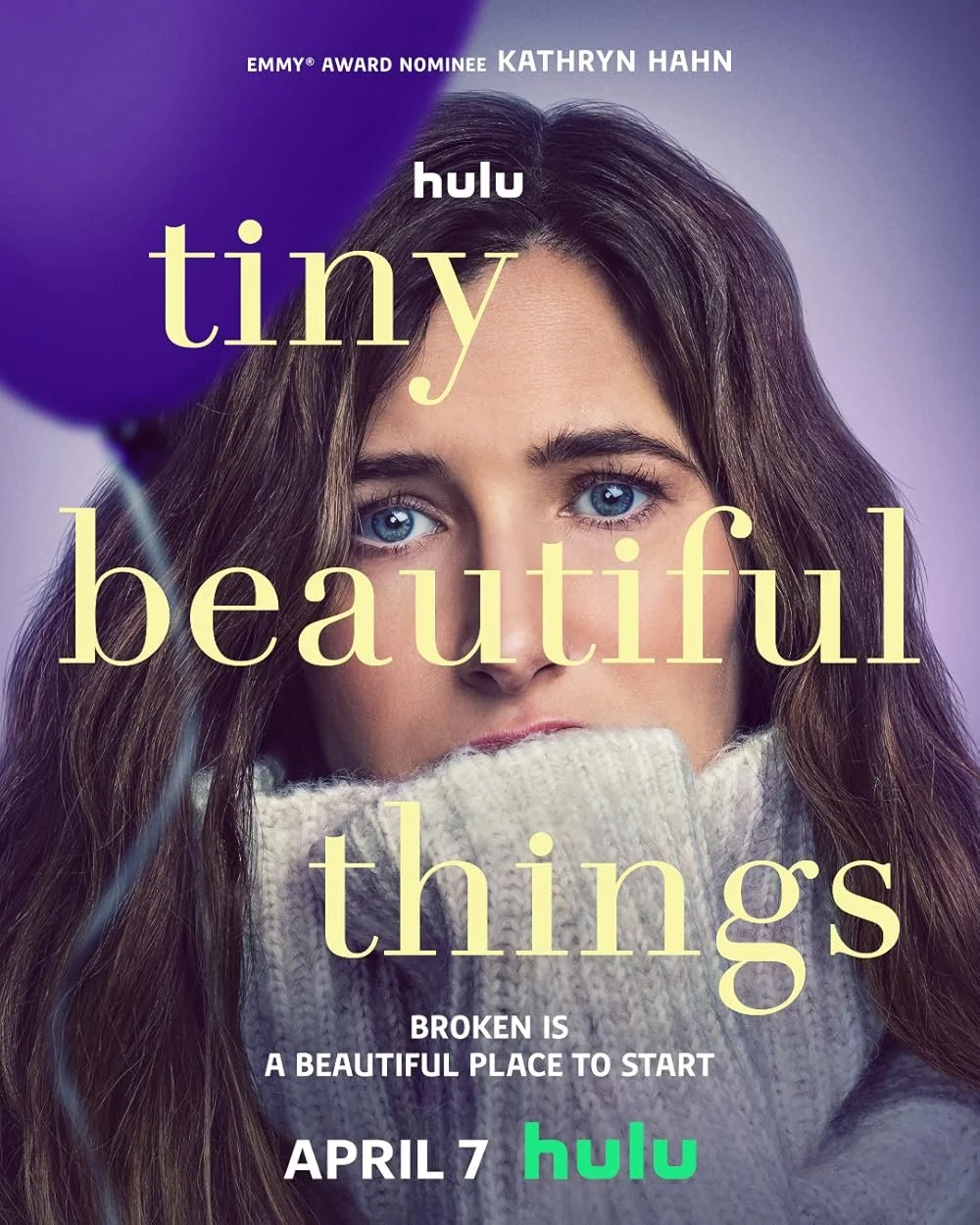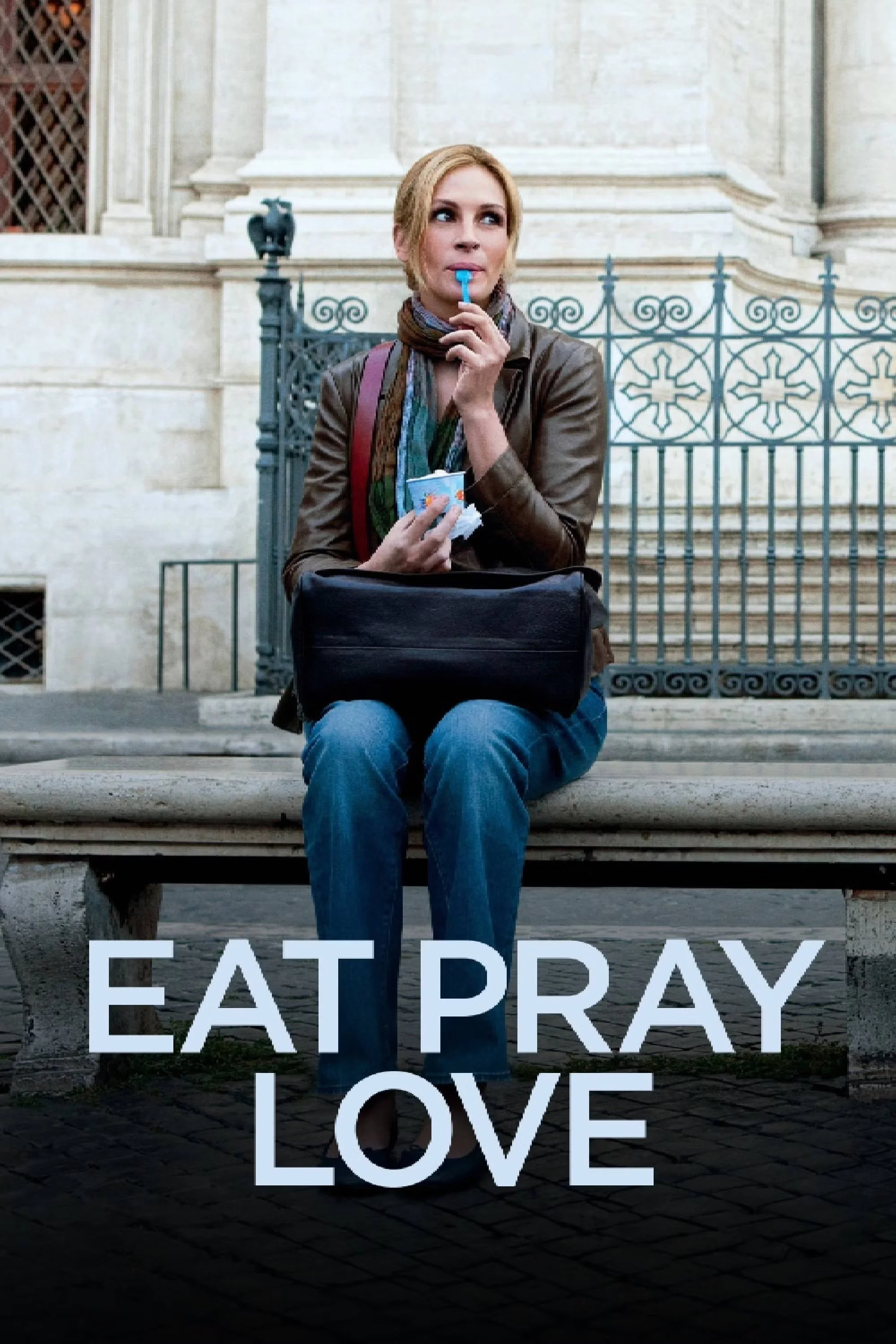To Adapt or Not to Adapt: Nonfiction in Film
By: Haley Graham
The book that first got me back into reading again in my adulthood was Just Mercy by Bryan Stevenson. This was years before it became a box-office darling as a film adaptation starring Michael B. Jordan, an acclaimed book about the death penalty and racial injustice that would make me dizzy with rage.
Say no more, I was reading it.
My personal copy of Just Mercy is well-worn-in, wrinkled, covered in annotations, and coffee stains. So when I found out that it was becoming a film in 2019, the part of me that was excited clashed with the part of me that felt territorial over the book that changed the direction of my social work career. How were they going to capture these stories of injustice without cheapening them? Was I thrilled to sob my eyes out while gazing up at Michael B. Jordan? Obviously. But at the cost of my favorite book? I wasn’t so sure.
Part of the shock value in Just Mercy came from the appalling statistics, the eye-opening splinters of history that will make your heart sink. These anecdotes are important in making the book as necessary as it feels when you’re reading it, so how are they planning to naturally work those anecdotes into the script? Because omitting them from the book entirely would feel like stripping it of the essence that made it a bestseller in the first place.
In an era of docudramas, true crime, and tell-all memoirs, what makes a nonfiction book adaptable to the screen? Some of my very favorite nonfiction books have totally flopped on screen despite being award-winning books by numerous standards. Tiny Beautiful Things: Advice on Love and Life from Dear Sugar by Cheryl Strayed was a 5-star book for me, but the Hulu miniseries starring Kathryn Hahn fell flat. I only got past the first episode before I gave up on the Hallmark-y writing. Audience reviews were mixed, but the series ultimately ended up with an 85% on Rotten Tomatoes. A common theme I noticed in review: The higher reviews seemed to come from people who hadn’t read the book, while the more scathing or disappointed reviews came from people who had read and enjoyed the book first before diving into the series.
But some stories seem to simply WORK on screen. Action-packed memoirs, true-crime horrors, and some celebrity intrigue? Those are guaranteed money-makers. Under the Banner of Heaven, adapted from Jon Krakauer’s 2003 book, was a Hulu hit in 2022 that chronicled the story of the Lafferty brothers, an LDS family in Utah whose spiritual beliefs became delusional and violent, resulting in a murder that would upend a community. It had all the trappings for a TV hit, and it’s rated an 87% on Rotten Tomatoes.
Coming from the mouth of someone who has absolutely 0 knowledge about film or video production, I think true crime books adapted onto the screen are softballs. Easy money, so long as you don’t annihilate the script with an unnecessary love interest or clunky, unnatural dialogue. You don’t have to start from scratch, and you have an easy cop-out if the story doesn’t work. It wasn’t my story, so if you don’t like it, I’m only partially to blame.
Same goes for memoirs and personal narratives. Movie-goers love a true story, even when they know that “based on a true story” oftentimes means very loosely based. How lucky for producers to be handed a half-written script that is a drama-laiden memoir? Elizabeth Gilbert was the magic of Eat, Pray, Love. Or at least, that is before Ryan Murphy came to town and slurped up her genius to spit it back onto the screen. In a classic Ryan Murphy fashion, he cheapened a story that actually resonated with women across the world in profound ways. Julia Roberts was a saving grace for a script that could be read as corny and boring– white woman goes to India to do yoga and find herself? Yawn. And that yawn made $204.6 million in the box office.
The Glass Castle by Jeanette Walls made $22 million. Say Nothing, a series on Hulu about the IRA in Ireland, grosses an average 20 million monthly viewers on their limited series. So the screen adaptations that do get it right, what do they have in common?
In the case of Beautiful Boy by David Sheff, the answer is the dynamic duo of Steve Carrell and Timothee Chalamet. In Unbroken by Lauren Hildebrand, it’s the commitment to the history, and to the real-life veteran whose story is told. Killers of the Flower Moon by David Grann was popular for its already wide net of acclaim, paired with a top budget, well-known actors and producers, and some Oscar buzz from the start of filming.
But being widely known does not always correlate with being widely loved.
Need I remind everyone that Hillbilly Elegy by one of America’s finest, J.D Vance, was also adapted into a 2020 film with Amy Adams and Glenn Close? His book has sold 1.6 million copies worldwide, but the film adaptation has a 24% on Rotten Tomatoes. The book itself appears to slowly be aging out of its once critical acclaim, now receiving more critique from readers who see J.D. Vance’s cognitive dissonance for what it is: a refusal to believe any other experience than his own. I have not read or watched either, for reasons that feel obvious, but it seems to universally be a bad movie with the only saving grace being Glenn Close’s performance.
A movie so bad that a performance by Glenn Close couldn’t even fix it? That’s a tough look.
To make a successful nonfiction book work on screen, you can’t take the easy way out on a script. Readers will recognize bad screenwriting too, and they aren’t easily fooled by the contract writer from Lifetime who clearly hadn’t read the book when they agreed to the project.
You can get away with these things when adapting fiction where we expect to see the drama, the will-they-won’t-they, the cliches. But nonfiction doesn’t afford all of the same graces, and it requests that you don’t leave the important information out.
It feels like a pretentious part of me wants to shove production companies out of the room from some of my favorite books in an effort to protect them from becoming watered-down, made-for-TV versions of what they once were. Too many people will watch Just Mercy and conflate that with reading the book when there are so many nuggets of gold that you entirely miss if you haven’t read it.
When it’s done well, you have a movie like Beautiful Boy that seems to have captured a feeling that’s hard to pin down. When it’s done poorly, you watch through one eye to bear the cringe of it all. Which is to say that the age-old adage oftentimes remains true even in nonfiction – The book is almost always better than the movie.




